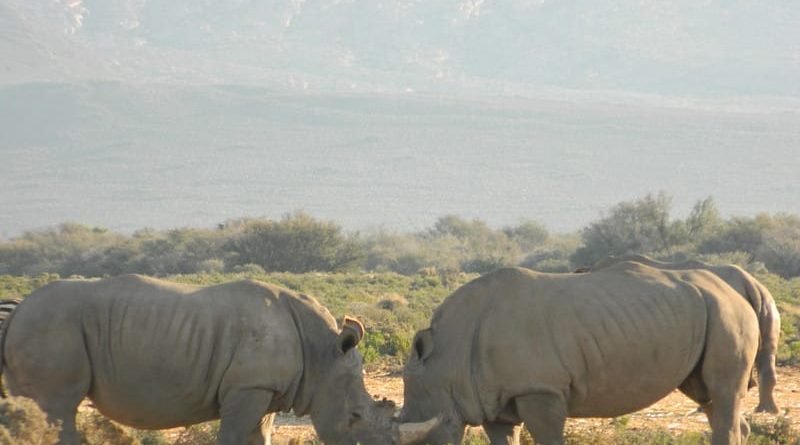Ensuring Biodiversity Now Will Prevent Pandemics Later
Share it!
A future repetition of the current COVID-19 pandemic is preventable with massive cooperation on international and local levels and by ensuring biological diversity preservation around the world, experts recently said.
How to prevent the current crisis in the future
According to the World Health Organisation the coronavirus originated in bats, and original theories had circulated the virus spread to humans from a wet market in Wuhan, China.
In celebration of the International Day for Biological Diversity held on Friday, May 22, the United Nations Educational, Scientific and Cultural Organisation (UNESCO) held a series of panels, bringing together experts to speak about this year’s theme “Our solutions are in nature”.
The current COVID-19 pandemic was the key theme in all the discussions and various experts from around the world shared their thoughts on topics such as the link between the current coronavirus crisis and biodiversity, methods and practices that can unite different communities and solutions that humans can carve out from our access to nature.
Many of the experts echoed the notion that better conservation can play a crucial role in preventing such a crisis in the future.
“Better conservation of large intact natural areas, including natural world heritage sites and urgent measures to address illegal wildlife trade are really considered important to limit the emergence of new diseases in the future,” Mechtild Rössler, director of the World Heritage Centre (WHC), said at the panel.
“Focus should not only be gazetting protected areas but also on creating and [enabling] conditions [where] these areas can fulfil their biodiversity conservation objectives,” she added.
Paul Leadley, a researcher at the University of Paris-Saclay, pointed out that human health is “linked indissociably” with the condition or health of nature, and that about 70 percent of emerging diseases are a result of human contact with animals, including causes such as deforestation and trade and consumption of wild animals.
As such, he said, it’s crucial that we have preventative measures instead of carving out measures only in response to a crisis, as is happening now.
“We need to be more proactive and researchers and decision makers must understand that we need it to be upstream,” he said at the “What changes are necessary?” panel. “We need to identify diseases that could emerge before they spread, [and] we [need to] start to better understand the change from transmission from animals to man.”
And these issues have an economic impact as well.
Rössler noted that heritage sites in 90 percent of the countries where heritage properties are located have been partially or fully closed due to loss of entrance fees, thus contributing to the local economy in a negative way.
Closures of sites have caused major socioeconomic impact for communities living in and around these sites, Rössler said, including disruption of community life, aggravated poverty and serious issues related to the monitoring of conservation practices.
Rössler isn’t alone in this observation.
Roderic Mast, co-chair of the International Union for Conservation of Nature SSC Marine Turtle Specialist Group, recently told IPS that they have been receiving reports of how a lack of monitoring and enforcers on the ground have caused increased illegal poaching in places such as Indonesia and French Guiana.
International and local cooperation
Leadley, who is also an Intergovernmental Science-Policy Platform on Biodiversity and Ecosystem Services (IPBES) expert, further said it’s crucial for international and local cooperation in order to prevent such transmissions.
Rössler echoed a similar thought, and called for a “stronger commitment” between all parties.
“We need a stronger commitment from all governments to conserve and manage these areas, to exclude them from unsustainable development activities and we need increased solidarity and cooperation among nations to achieve that,” she said, adding that it will also help communities further contribute to actions surrounding climate change.
Tim Christophersen, coordinator of the Nature for Climate Branch at United Nations Environment, highlighted the youth’s activism on the matter.
“We see the emergence of a global restoration movement from youth networks to communities that want to rebuild their livelihoods all across the world so this movement is already emerging,” he said at the panel “What are the possible ways to regenerate ecosystems and restore our connections with biodiversity?”
Christophersen is also a focal point for the U.N. Decade on Ecosystem restoration 2021-2030, and said the next decade has a lot of opportunities for learning between local and international communities.
“What we can do with the U.N. decade is to link local activities to a global umbrella to give people at a local level more tools and hopefully more resources, more inspiration and a connectedness to a global movement where we can learn from each other,” he said.
Share it!
Since its inception, back in 1964, IPS has believed in the role of information as a precondition for lifting communities out of poverty and marginalization. This belief is reflected in our historic mission: “giving a voice to the voiceless”– acting as a communication channel that privileges the voices and the concerns of the poorest and creates a climate of understanding, accountability and participation around development, promoting a new international information order.


